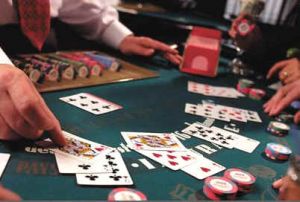Money laundering through casinos
A special task force has uncovered a new method of money laundering, and is working with casino operators to nail the culprits.
S Rutra, FMT
A special task force on money-laundering and tax-dodgers has discoverd the latest modus-operandi of certain “professional money-launderers”.
These money-launderers abused the account facilities provided by casinos to carry out their “fishy” transactions.
A probe on the transactions revealed that certain account holders had frequented the casinos at Genting Highlands and withdrew cash as much as RM1 million from their accounts before converting the money into gambling chips.
“After playing for some time, these accounts holders would return to the counters to change their chips by requesting cheques to be issued on the balance,” a source told FMT.
He said once the cheque was issued, they would deposit it into their normal accounts.
“These transactions were carried out as a safeguard from any queries from enforcement agencies including the Inland Revenue Department (IRD),” he revealed.
“They use all kinds of methods in ‘parking’ their ill-gotten money to the extent of losing some money in the process,” he added.
The task force comprised officers from the Attorney-General’s Chambers, Bank Negara, IRD, police, Customs Department, Securities Commission (SC) and several other enforcement agencies.
The task force officers, when contacted, declined to reveal any information on their operation.
It is learnt that the task force was working closely with the casino operator in tracking down account holders who abused the facilities provided to them.
In a related development, several officers of the complience unit of local banks confirmed to FMT that the limit of raising the red-flag to Bank Negara on suspected transactions was as low as RM50,000.
They said that under the Anti-Money Laundering and Anti-Terrorism Financing Act 2001, all reporting institutions like banks, insurance companies, remmitance service providers are required to comply with the requirement.
“Even lawyers and accountants are required to report to the central bank on any suspected illegal transactions,” added the officers.


